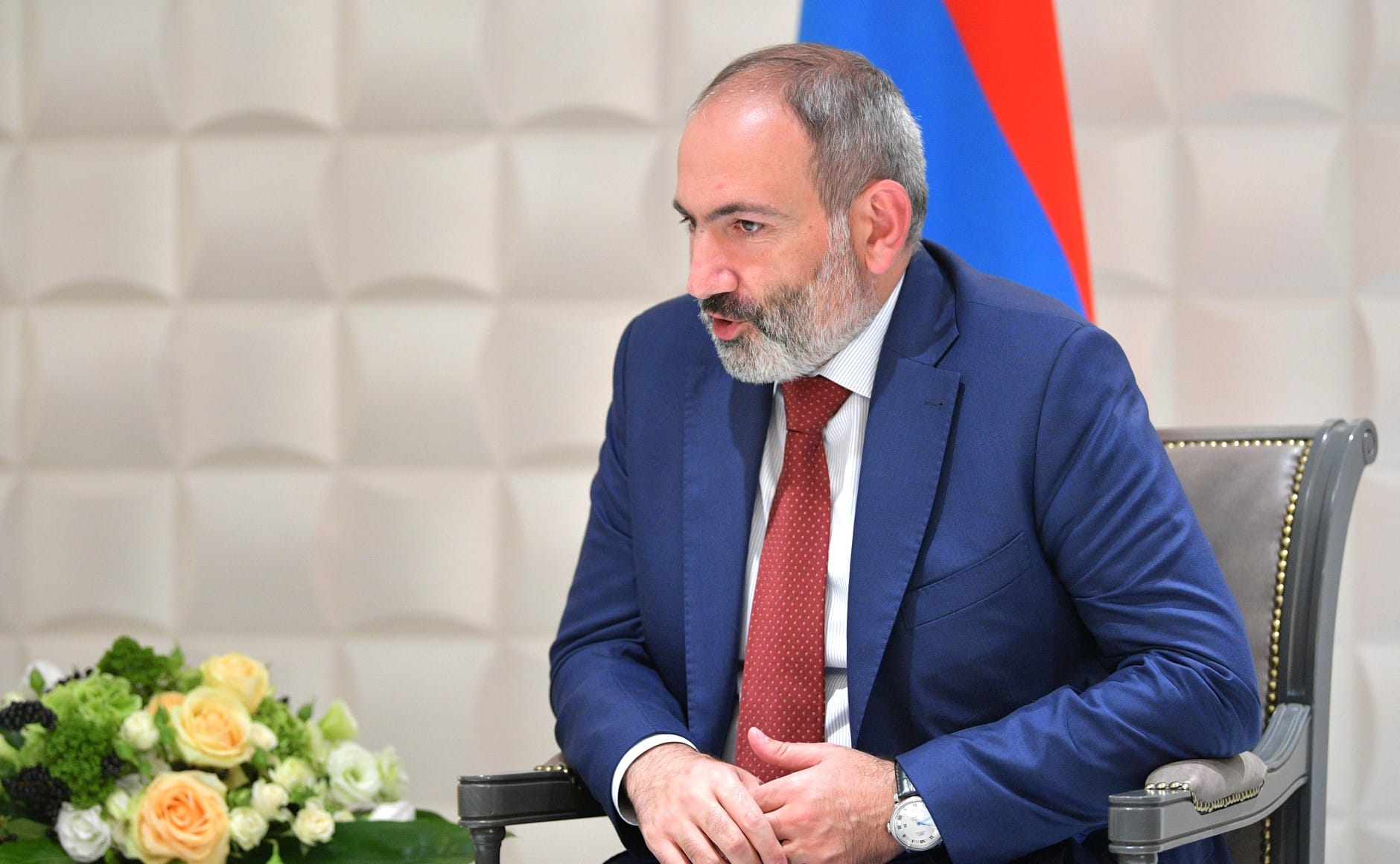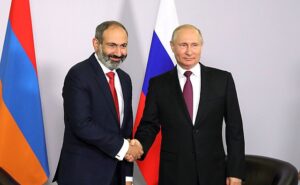The Armenian June 20 parliamentary elections were set to become a close tie between Prime Minister Nikol Pashinyan’s Civil Contract party and former President Robert Kocharyan’s Armenia Alliance, according to polls. They were far off though. Civil Contract managed to gain a majority of the votes, corresponding to two-thirds of the seats in the Armenian parliament. The recently established Armenia Alliance came in second by quite some distance. The only other party to enter parliament is the new I Have Honour Alliance. Overall the elections were free and fair, but Kocharyan is refusing to accept the election results. Tensions remain high.
Pashinyan outscores recent polls by far
There was much criticism on Pashinyan’s handling of the lost war against Azerbaijan in the fall of 2020, which triggered these early elections. One of his critics, Kocharyan, proved to become his main challenger. Despite Armenia Alliance was only established in May of this year, having its leader Kocharyan as prime minister would be considered a return to “the old regime”. The most important party within the alliance, is the leftist Armenian Revolutionary Federation (ARF). To many Armenians the election might have felt like choosing between “two evils”. With Kocharyan opting for closer ties with Russia and playing hardball with Azerbaijan, Pashinyan is the more moderate of the two on these issues though.
The most recent polls predicted a neck-on-neck race between Civil Contract and Armenia Alliance. Both parties were expected to gain about 25% of the votes. However, in those surveys, there were many who declared that they were still undecided. Many of them will have voted on Pashinyan. The results released on June 22 showed that Civil Contract gained 53% of the votes. Though Armenia Alliance came in second, it did so by a mile. The party only gained 22%. A disappointment, considering it was gaining momentum and polled as high as 29% recently. A large majority clearly preferred Pashinyan’s government over the “the old”.
Only two other opposition parties win seats
Of the over twenty parties participating in the election, only three will make it into parliament. Next to Civil Contract and Armenia Alliance, the recently established I Have Honour Alliance, led by former director of the National Security Service and President Arthur Vanetsyan, is the third party to win seats in the assembly. This despite the alliance in the results failing to reach the 7% electoral threshold for political blocs, gaining 5.2% of the votes. Under the Armenian Constitution, there need to be at least three parties represented in parliament. Seats will be allocated to the third-largest party regardless of whether it breaks the threshold.
With these election results, Pashinyan’s Civil Contract would gain 72 seats, the Armenia Alliance 27 seats, and the I Have Honour Alliance 6 seats, in a 105 seated parliament. Yet, if the largest party gains over two-third of the seats, the other opposition parties will be awarded seats to bring that the share down back to two-thirds. This is one of the balancing methods defined under the Armenian constitution. As such, after these elections, Civil Contract will have 71 seats, Armenia Alliance 29 and I Have Honour 7, in a 107 seated assembly.
The two former parties represented in parliament, Prosperous Armenia (PAP) and Bright Armenia (BAP), failed to reach the 5% electoral threshold for political parties. The pro-Russian PAP gained 3.9% of the votes, while the pro-Western BAP only managed to gain 1.2%. The pro-European Hanrapetutyun Party gained 3.0% of the votes. No other parties reached higher than 1.5%. The leftists Democratic Party of Armenia gained 0.39% and the social-democratic Citizen’s Decision gained 0.30%. All of this means that the opposition will now solely consist of parties opting for closer ties with Russia, with the Armenia Alliance and I Have Honour Alliance.
Kocharyan refuses to accept results
Shortly after Pashinyan held his victory speech and declared that the vote gave his party a “clear mandate to lead the country”, his rival Kocharyan said his party would not recognize the results. For the party to accept the results, the alleged voting irregularities needed to be “addressed”. It would seek consultation with other opposition parties to started consultations with other parties to appeal to the country’s constitutional court. The party raised the “hundreds of signals from polling stations testifying of planned falsifications”. The general prosecutor mentioned it had received some 319 reports of violations.
More importantly, the Organization for Security and Co-operation in Europe (OSCE) stated that the vote was in overall free and fair. In its report released on June 21, it noted that election day was peaceful, generally speaking. Voter turnout stood at 49.4%, which is slightly up from the 48.6% during the December 2018 elections. The OSCE also noted that the elections were well managed within the short timeframe and were competitive. However, there were also concerns. The nature of the campaign, revolving around the personalities of the two main rivals, hindered any policy-focused debate. Women were also side-lined during the campaign.
Tensions will remain high
Before the election results had come in, it was already expected that tensions would remain high. The emotionally charged rhetoric during the election campaign made it “toxic”. There was virtually no discussion on policies and to some Armenians, the vote would have felt like choosing between “two evils”. The opposition forces rallied their supporters to the streets and demonstrate. It is no surprise that Pashinyan, in his victory speech, called on his own supporters to join him on the main square of Yerevan. Clashes were not seen as unlikely in the days after the June 20 vote, but have not occurred so far.
Given the high tensions, there were concerns that the opposition forces will not take up their seats in parliament. The Civil Contract released a statement saying that the landslide election win of Pashinyan contradicted “the results of polls, including international polls, as well as common sense”. However, it no large surprise that the polls were quite far off. The only reliable polls of the International Republican Institute (IRI) were conducted before the establishment of the Armenia Alliance this May. The polls also failed to account for the 30% undecided voters, who preferred Pashinyan over an opposition split into many different factions.
What happens in the next weeks is unsure. Civil Contract will take up its seats in parliament and Pashinyan will form a new government. The elections give him a strong mandate to do so. It is to hope, however, that stability will come back to the country after the lost war against Azerbaijan, months of opposition protests and a toxic election campaign. It is a good first step that Kocharyan at a press conference declared that Armenia Alliance will take up its political mandates. He did mention that if Pashinyan continues to govern “in the same style”, that it will not take very long for another early elections to be triggered though.
Image: (Nikol Pashinyan, 2019)
Sources: Aljazeera1, Aljazeera2 AP, BBC, DW, Eurasianet, France24, Intellinews, Reuters1, Reuters2, Rferl1, Rferl2, Rferl3, TheGuardian



